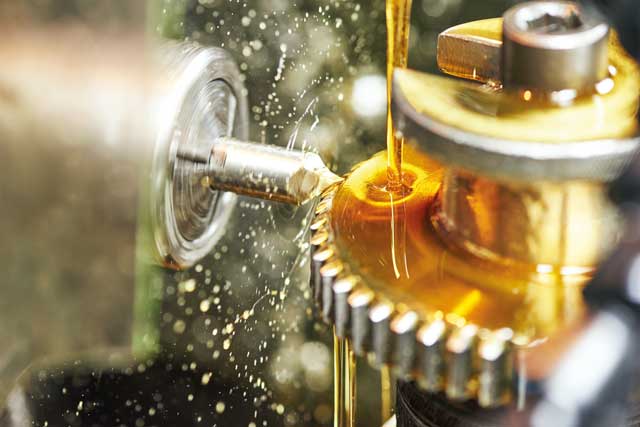 Using the wrong oil for the job, or not enough of it, can have serious consequences. Bob Wood, technical engineer at Total Lubricants, looks at the potential dangers
Using the wrong oil for the job, or not enough of it, can have serious consequences. Bob Wood, technical engineer at Total Lubricants, looks at the potential dangers
With companies placing increasing emphasis on productivity and competitiveness, the effective lubrication of industrial equipment should be a priority in any maintenance programme.
As any maintenance professional knows, improper lubrication leads to increased friction and greater wear, which, in turn, can lead to breakdown and downtime.
Friction also prevents equipment from running at full operational capacity. Therefore it can affect production and ultimately a company’s profitability.
Here, we explore what can happen if the wrong oil or not enough oil is used in industrial processes.
Using the wrong oil
If the wrong oil is used, either a formulation of the wrong viscosity or one not containing the performance additives that are required for a specific application, major problems can occur.
Oil is used to separate or provide a barrier between metal components, to help reduce friction, heat and wear. If the oil is too thin, metal-to-metal contact may occur, which reduces the life of the component. It also raises the temperature of the lubricant, making it even thinner than before, which can lead to equipment failure.
If the oil is too thick, extra power may be required to pump it around the system, which increases energy costs. It may also cause operating temperatures to rise above acceptable levels, which could trip high-level alarms, resulting in shutdown of the equipment.
If the oil does not contain the correct additives, it will not perform well and, in the worst case, may even damage the equipment being lubricated.
In metalworking, and in the production of metal fasteners in particular, lubrication is so critical that the fastener manufacturing process itself can’t take place without it. If the wrong oil or not enough oil is used, the surface finish on the product will not be of optimum quality and costly tool damage can occur. Using the correct oil means target production outputs can be achieved, while each individual piece is consistently of the desired quality.
Not using enough oil
If there is not enough oil in the system, the desired cooling rate will not be achieved, and the oil will not have time to release any foam or aeration or clean away any wear metals or debris. A low volume of oil in the system will not last as long because it is being worked too hard, ultimately leading to more frequent drain intervals.
Data & analysis
It is important that maintenance professionals use oil analysis on their critical equipment to extend lifespan and efficiency. Total’s technical team can interpret and explain performance analyses in simple terms, helping keep equipment healthy and running smoothly.
The compatibility of mixing different types of oil also needs to be known. Total has five field engineers who can inspect the equipment and cross-reference with databases to find the best solution for a particular application.
As well as helping to optimise the productivity of machinery, Total adds further value with services such as Totalgarde, its oil analysis service which uses expert diagnostic and preventive information to help identify and prevent machinery health issues, and TIG 6, its optimised maintenance software for managing industrial lubricants.
Conclusion
Effective lubrication maintains the reliability and extends the lifetime of expensive industrial equipment, and is fundamental to productivity, efficiency and uptime.
For greater peace of mind, maintenance professionals should incorporate oil analysis into their lubrication strategy, as this will identify any potential issues before they become major problems.
Total Valona HC is a range of neat cutting oils formulated exclusively from hydrocracked base oils. Transparent and odourless, Valona’s low volatility and high resistance to oxidation reduce misting and oil consumption due to evaporation, while extending tool lifetime.
The Total Martol range of metalforming oils presents a health and safety advantage by being chlorine-free, while being suited to the most demanding metalforming operations.
Further information:
www.total.co.uk/businessproducts/industrial-lubricants
Tel: 01977 636303 email: lubesorders@total.com

